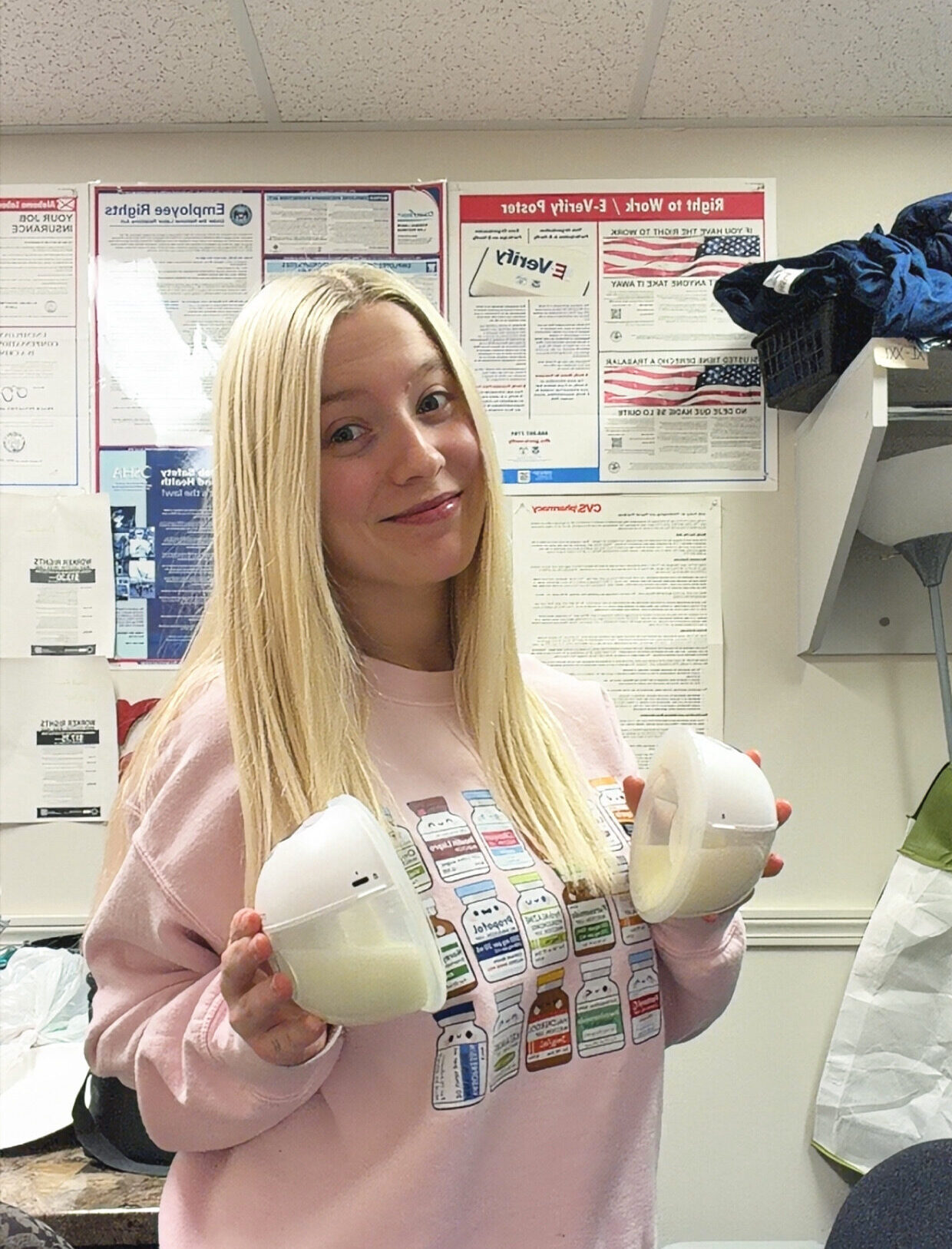Oversupply equates to having an abundance of milk. If you have an oversupply of milk, you are producing more than your baby currently requires.
Your milk supply may naturally be greater after each baby you have and sometimes there can be medical causes rooted in hormonal imbalances for having too much milk. Other reasons for oversupply can be down to breastfeeding management.
It is quite common to experience engorgement and ‘feeling full’ in the early weeks of breastfeeding and there may be times when you may question whether oversupply is at play. However, it is not often recommended to reduce your milk production during the early weeks where some oversupply can be very normal. You may find that after a development leap or illness where your baby has fed more frequently than usual, your breasts or chest may feel fuller over a few days whilst the demand decreases and your milk supply adjusts.
If however, you rarely have breasts that are softened and your baby consistently appears unhappy and struggling, it may be time to think about your milk production. When doing so, it is important to be mindful that symptoms of oversupply can be very similar to other conditions such as babies suffering with allergies or having issues with spitting up and reflux, amongst other causes.
How to recognise true oversupply
Some of the key elements of recognising when you may be experiencing true oversupply is if your baby is struggling with the abundance of milk and they are discontent with rapid changes to their weight gain.
Symptoms you may experience are recurrent blocked ducts or mastitis or finding that your breasts or chest are rarely comfortable or softened after a feed. Other signs can include explosive stools in nappies, increased gassiness and a forceful or very painful let-down. However, it is important to bear in mind that these signs alone do not always signal oversupply or that there is an issue. Oversupply is not always a problem for all babies. This is why it is a good idea to seek skilled support before attempting to reduce your milk supply.

Symptoms you may experience are recurrent blocked ducts or mastitis or finding that your breasts or chest are rarely comfortable or softened after a feed.
Top tips to manage oversupply
Here are some helpful tips on how to manage oversupply issues:
- Feed your baby responsively, paying close attention to their cues. This will help to regulate your milk production
- Avoid timing and restricting the length of feeds or the intervals between them. Instead focus on offering your baby your breast or chest at least 8-12 times a day
- Keep an eye on positioning and attachment, making sure that your baby is able to get a deep mouthful of breast tissue. This will ensure optimal milk transfer at each feed
- Use breast compressions to help stimulate another let- down or to get the milk flowing again during a breastfeed
- If you are experiencing a forceful and fast let down, working with gravity and adopting a more reclined position can slow down the flow, making it easier for your baby to cope. Allowing your baby to pop themselves off the breast and catching the let- down that baby is struggling with in a muslin or cloth can also help
- Avoid expressing or stimulating the breasts without a need
If you are still finding it difficult to cope with your supply after trying the above tips, it is essential to get skilled support from a lactation consultant, breastfeeding counsellor, or health professional such as your midwife or health visitor. They will be able to work with you to find out whether oversupply is the root of the issues you are facing and if so, they can support you in decreasing your milk supply using other methods. This might include a temporary method called block feeding where you always offer the same breast within a certain time frame or temporarily sticking to feeding from one side at each breastfeed until it settles.
References
Too Much milk and oversupply – https://www.laleche.org.uk/too-much-milk-and-oversupply/
Oversupply of breast milk and how to reduce it – https://www.nct.org.uk/baby-toddler/feeding/common-concerns/oversupply-breast-milk-and-how-reduce-it
Oversupply of breast milk – https://breastfeeding.support/oversupply-breast-milk/




















